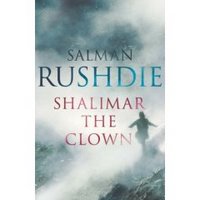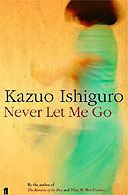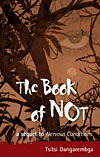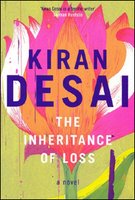Compiled by Molara Wood
Diran Adebayo
American Professor Tommie Shelby's new book We Who Are Dark: The Philosophical Foundations of Black Solidarity (Harvard University Press, 2005) is a strong, timely, radical critique of black identity politics in the States; its history, its philosophic rationale, and its usefulness (or not!) for present and future times. It's very relevant to black and other diasporic minorities, particularly in countries like Britain, where, lacking the social and historical particularities that bound black Americans, we're moving, at least partly, towards 'post-black' times.
Beyond that, in terms of imaginative writing, I've mainly been into 'short' this year, and a lot of novels could be shorter. Many lack urgency or freshness in their way of telling; seem too hidebound for a cine - and pop music - literate age. I'm reading the Booker short-listed, Libya-set, In the Country of Men by Hisham Matar, which is nicely cinematic, but too soon to give a final verdict. Have also been reading a number of vignette-minded writers: some of the short stories of American William Morris, Cuban Guillermo Infante Cabrera's View of Dawn in the Tropics; a novel by Ray Loriga called My Brother's Gun, and poet Gwendolyn Brooks' sole fictional foray, the very fine Maud and Martha. All are skilled at deploying fragments to tell you what you need to know about a character and his situation without supplying the full, orthodox-rendered background. There's often a poet's conciseness, a poet's feel for texture, to their prose and - hardly surprising - poets have been among my reading too. I'm enjoying a collection by the Jamaican/American poet Mark McMorris, The Blaze of the Poui, his third. Mark belongs to a new generation - nothing as tight as 'school' - of black experimentalists who are writing work that is only very loosely narrative-bound, and he shares with many of the writers I mention above a certain distinctive stance towards the matter at hand. The Blaze of the Poui is to a large degree about conquest/exploration and Eros, and numbers For the Love of Women amongst its standouts. Plenty of felicitous verbal mishandlings, a la Kamau Braithwaite, here.
Folu Agoi
Uzor Maxim Uzoatu's God of Poetry (The New Gong Publishers, Lagos; 2006) is a piercing poetic dissertation based on the severe realities of the chequered history and erratic contemporary circumstances which seem to be moving the world, especially Africa – the focal spot of the pungent collection, towards a cavernous abyss. Africans, especially Nigerians would readily connect with the publication, which effectively presents Uzoatu as an audacious activist, agitator and campaigner for social reconstruction.
 Araceli Aipoh’s No Sense of Limits (Magicword Ltd, Lagos; 2006) features a colourful mélange of associated characters, whose intrigues – based on varied intrinsic dispositions, draw attention to some common human innate traits, which are fated to attract catastrophic consequences. The novel is a picturesque narrative established on the colourful dais of opulence, utter poverty and squalor – the contradictions which account for the complex, enigmatic character of Lagos, its setting. The great strength of the novel lies in its simplicity; in the immense power of the language: lucid, limpid and blustery.
Araceli Aipoh’s No Sense of Limits (Magicword Ltd, Lagos; 2006) features a colourful mélange of associated characters, whose intrigues – based on varied intrinsic dispositions, draw attention to some common human innate traits, which are fated to attract catastrophic consequences. The novel is a picturesque narrative established on the colourful dais of opulence, utter poverty and squalor – the contradictions which account for the complex, enigmatic character of Lagos, its setting. The great strength of the novel lies in its simplicity; in the immense power of the language: lucid, limpid and blustery. Ike Anya

My first choice unsurprisingly is Chimamanda Ngozi Adichie’s Half of a Yellow Sun (Farafina; 2006). Painting in broad brush and fine detail on an astounding sprawling canvas she deftly and ambitiously continued to tell our story - picking up all the various little stories and anecdotes about the war that we grew up hearing from our parents, our grandparents, our uncles and aunts. In doing this she eloquently answers the question that I have often been asked and been unable to answer adequately - Why does Biafra matter? It’s a stunning achievement.
Kalisha Buckhanon's slim offering Upstate impressed me with its lyrical, gripping insight into the lives of deprived inner-city African- American youth and the choices thrust upon them, while Salman Rushdie’s evocation of the unravelling of peace in Kashmir in Shalimar the Clown reaffirmed my enthusiasm for his writing.
Finally, The Next Gulf - London , Washington and Oil Conflict in Nigeria (written by Andy Rowell, James Marriott & Lorne Stockman; published by Constable & Robinson) made for disturbing reading as it explored the power games in which many of my country men and women are mere pawns.
 Chris Dunton
Chris DuntonTerry Eagleton’s After Theory. He’s never been as searching, as challenging and as funny. Let the White House tremble. Ngugi’s Wizard of the Crow—again, he’s rarely been so audacious, so bitingly funny, and the characterization is brilliant. At 800 pages, it ought to win him a prize for stamina, apart from anything else. And I must mention Kazuo Ishiguro’s novel, Never Let Me Go. Unbearably painful—I know that as long as I live it will never let me go.
Jennifer Ehidiamen
My favourite book of the year: No Sense of Limits by Araceli Aipoh. Reason: It is one of the few novels I have read this year that really excited me. A good storyline with lively characters. The book was well written with good use of imagery. I love the way Lagos came alive on those pages. Most importantly, its qualitative print is highly commendable, no fear of the pages falling out with every flip. I will recommend it to any good reader. Thumbs up to the author for such a creative work.
 Helon Habila
Helon Habila Both books I am selecting are by female authors. The first one is Tsitsi Dangaremba's second novel, The Book of Not (Ayebia, 2006), a sequel to her first book, Nervous Conditions. I reviewed it for the Guardian (UK) recently and what's most memorable about it is the prose style - I can't remember another book which has deployed the flashback and the first person point of view the way they are done here. Though the book sort of lost momentum towards the end, it is still one of the best works I've read this year, especially since the Zimbabwean situation is of particular interest to me.

The second one is the Booker Prize winner, The Inheritance of Loss (Hamish Hamilton, 2006) by Kiran Desai. I read her first book a long time ago so when this one came out earlier this year I bought it. I love its relentless, realistic depiction of poverty and its grasp of the unequal global relation between north and south, between the powerful and the powerless. She does violence very well, and she writes without letting unnecessary emotions intrude. Though I never thought it would win the Booker, I am glad it did.
Anietie Isong
Minaret by Leila Aboulela (Bloomsbury) - This is a brave and challenging second novel. It is the story of Najwa, the daughter of a government official whose home is a grand house run by six servants. Things fall apart when the army seize power in Sudan, and she flees to London. The characters are very convincing. Najwa's brother, Omar becomes an addict in London, and he receives a long prison sentence. Her mother, the only link with her former existence, suffers a long illness and dies. Aboulela does not preach to the reader. She reveals, through her characters, that not all Sudanese are bigots. An example is Najwa’s lover, Anwar - a man of the future, a radical socialist who has nothing but disdain for the faith of the devout hijab-wearing students.
A Father’s Affair – Karel Van Loon (translated from the Dutch by Sam Garrett) This is a startling novel that kept me awake most nights. The title itself is ironic. A man suddenly realises that he is not the father of his thirteen year old son. The revelation is frightening and the woman who could have easily solved the riddle is dead. Amir, the unfortunate father takes the reader along a mazy journey of discovery. He is suspicious of everyone who knew his wife. 'A Father’s Affair' is tragic, and reveals the torturous and humorous moments of adult relationships. I love the plot and the diction that is spiced heavily with wit.
Nnedi Okorafor-Mbachu
Wizard of the Crow by Ngugi wa Thiong’o - At risk of sounding hyperbolic, I must say that Wizard of the Crow (Harvill Secker; 2006) is one of the best books I’ve ever read. It had all my favourite ingredients: Sorcery, politics, audacity, an African setting, strong female characters, a master storytelling garnered by great life experience and the book had weight (over 900 pages long). Ngugi wa Thiong’o is one of my favourite authors and I knew this book was going to be good, but I didn’t dream it would be this good.
The Amazing Adventures of Kavalier & Clay by Michael Chabon - This Pulitzer Prize winning novel centred on two Jewish comic book creators was a real joy to read. The novel is about immigrants and their need for and role in art, escapism, magicians, the holocaust, the creation of comic book characters, oh, and there’s a golem in it (that’s a traditionally Jewish monster made of clay). I love this kind of stuff.
- To be continued










.jpg)





No comments:
Post a Comment